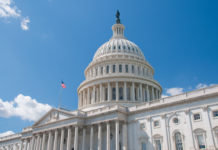Congressional reaction continues in response to the U.S. Supreme Court’s recent decision in Loper Bright Enterprises v. Raimondo, overturning the long-standing “Chevron doctrine” that required deference to agency interpretations of federal statutes in certain cases, as bills with two distinctly different perspectives have been introduced.
On July 23, Senator Bill Cassidy (R-LA), ranking member of the Senate Health, Education, Labor, and Pensions (HELP) Committee, introduced the Upholding Standards of Accountability (USA) Act that would, among other things, require the head of a federal agency signing a major rule to testify about the rule before the committee of jurisdiction within 30 days of the rule being published. On the same day, Senators Elizabeth Warren (D-MA), Richard Blumenthal (D-CT), Cory Booker (D-NJ), Mazie Hirono (D-HI), Ben Ray Luján (D-NM), Edward J. Markey (D-MA), Jeff Merkley (D-OR), Bernie Sanders (I-VT), Chris Van Hollen (D-MD), Peter Welch (D-VT), and Ron Wyden (D-OR) introduced the Stop Corporate Capture Act that would codify Chevron deference, allowing expert agencies to conduct rulemaking in line with their reasonable interpretation of their authorizing statutes.
As was previously reported, on July 10, House Committee on Oversight and Accountability Chairman James Comer (R-KY) announced he had sent letters to the Federal Acquisition Regulatory Council, General Services Administration, and Office of Personnel Management calling on them to respect limits on their regulatory authority following the Supreme Court’s decision in Loper, and requesting a wide range of information including lists of agency rules proposed or promulgated since President Biden’s inauguration that may be impacted by the Supreme Court’s decision. LeadingAge will continue to track these developments and others that emerge following the end of Chevron.




